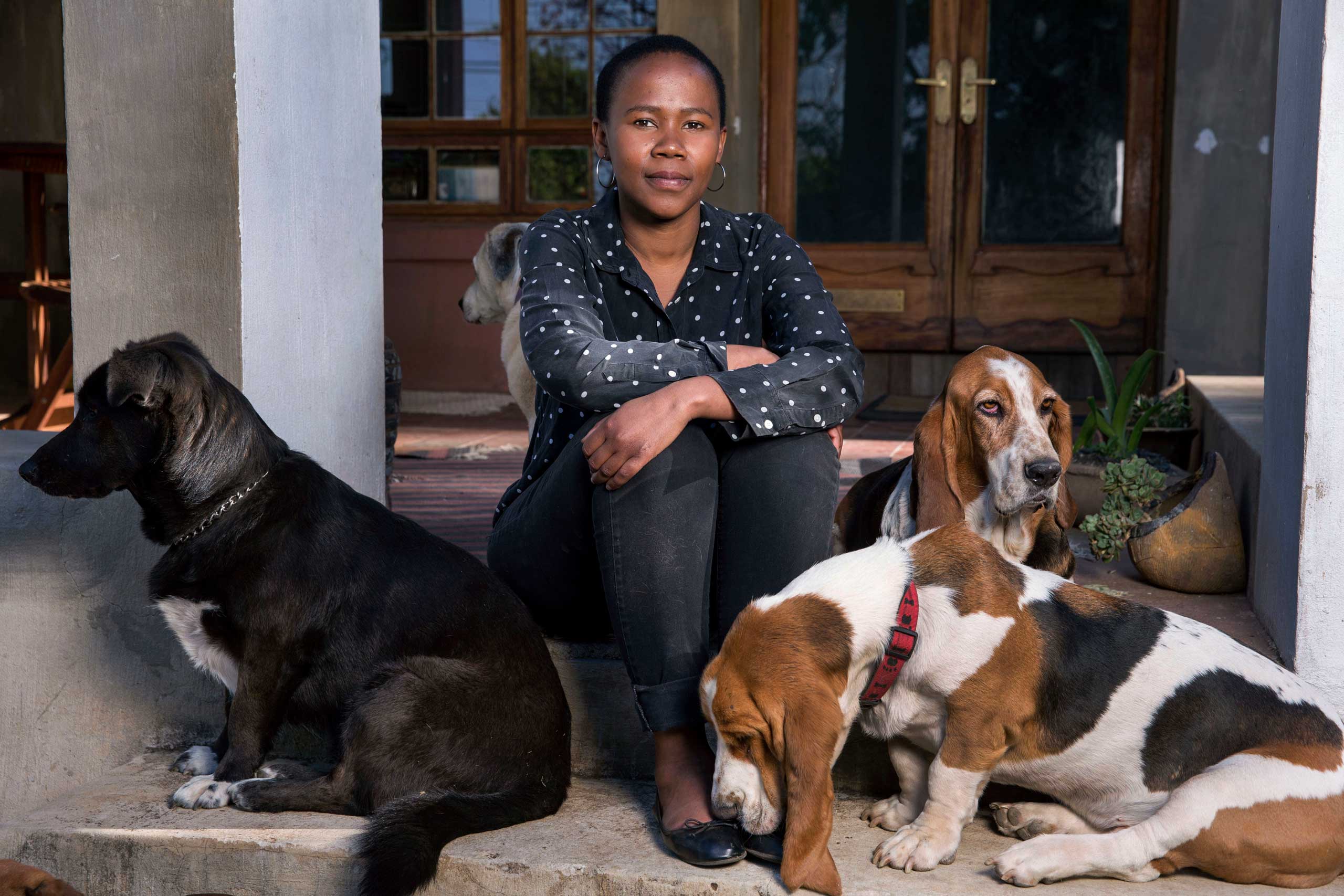When Phindile Sithole-Spong tells a gathering of young South Africans at a halfway-house for vulnerable teens in a Soweto township to ask her what it’s like to live with HIV, a young woman sitting in the center’s garden, where the teens have gathered for the talk, immediately raises her hand. “Do you have a boyfriend?” she asks. Sithole-Spong, 25, smiles and begins telling her audience how she met her beau. “How did you tell him you have HIV?” asks a lanky young man. The chattering boys and girls quiet with anticipation. So taboo is HIV, the virus that causes AIDS, that even though many of them have friends or family members who are HIV-positive, few of the teens dare to speak about it. To them, hearing Sithole-Spong’s stories about living openly with HIV, in a country where the virus is deeply stigmatized despite the fact that nearly 20% of the population carries the virus, is a revelation.
Sithole-Spong’s life is, deliberately, an open book. She meticulously chronicles her friendships, romances and medical routines on social media as part of her campaign to erase taboos around HIV/AIDS. As the founder and CEO of Rebranding HIV, a consultancy that helps companies such as Shell South Africa and South Africa’s power utility ESKOM tailor HIV-education outreach for their employees, she believes she has to be transparent about her own life. That is the only way, she says, to de-stigmatize a disease that infects more than 460,000 every year in the country. HIV used to be a death sentence, says Sithole-Spong. “Today it isn’t. When you contract HIV you can still be a girlfriend, you can still party with your friends, you can be whatever you want to be.” Her openness, she says, is “my public declaration that, ‘Look, I am HIV-positive, but I also have a very normal life.’”
Sithole-Spong only discovered that she had been born HIV-positive at the age of 19, when she developed symptoms of advanced AIDS. She has since recovered, but bitter experiences of coming out as an HIV-positive college student, combined with a dearth of information on how to live a healthy life with the virus, inspired her to work towards developing what she calls an “HIV-aware generation.”
“Sometimes the best advocates are the ones who are brave, strong and empowered to speak from their own experiences,” says Alan Smith, a senior advisor on HIV at International Planned Parenthood Federation, a non-governmental organization that promotes sexual health.“Her work to lead organizations to adapt and improve their efforts on HIV interventions is a great step.”

Sithole-Spong’s work, she says, is a rebuttal to the global slogan for addressing the spread of the disease that asks people to “Imagine a HIV-free generation.” It misses the point, she says. South Africa won’t be HIV-free until people who carry the virus can talk freely about their status. “That is how we will reduce new HIV infections because then the HIV-positive people will not feel a need to hide it. They will use protection, they will be more aware of themselves, and they will be more confident.”
Sithole-Spong has become a sought-after public speaker. She has given speeches at the African Union and at last year’s UNAIDS conference, where she emphasized the need for treatment that transcends drugs and anti-retrovirals to address the psychological impact of living with the disease. On Oct. 30, she spoke at New York City’s Black Ball gala event, in honor of singer Alicia Keys’ Keep a Child Alive charity, which supports children with HIV in Africa. (At the event, rapper Kanye West called her “amazing.”)
Back in South Africa her influence grows every time she hands out her phone number and email address, as she does to the adolescents gathered in the garden of the halfway house. Already she has some 600 HIV-positive youths reaching out to her by phone and on Facebook for advice and encouragement. That number will almost certainly continue to rise, and for Sithole-Spong, one more HIV-positive teen reaching out to her is one less young South African facing the isolation and stigmatization she suffered.
- Donald Trump Is TIME's 2024 Person of the Year
- Why We Chose Trump as Person of the Year
- Is Intermittent Fasting Good or Bad for You?
- The 100 Must-Read Books of 2024
- The 20 Best Christmas TV Episodes
- Column: If Optimism Feels Ridiculous Now, Try Hope
- The Future of Climate Action Is Trade Policy
- Merle Bombardieri Is Helping People Make the Baby Decision